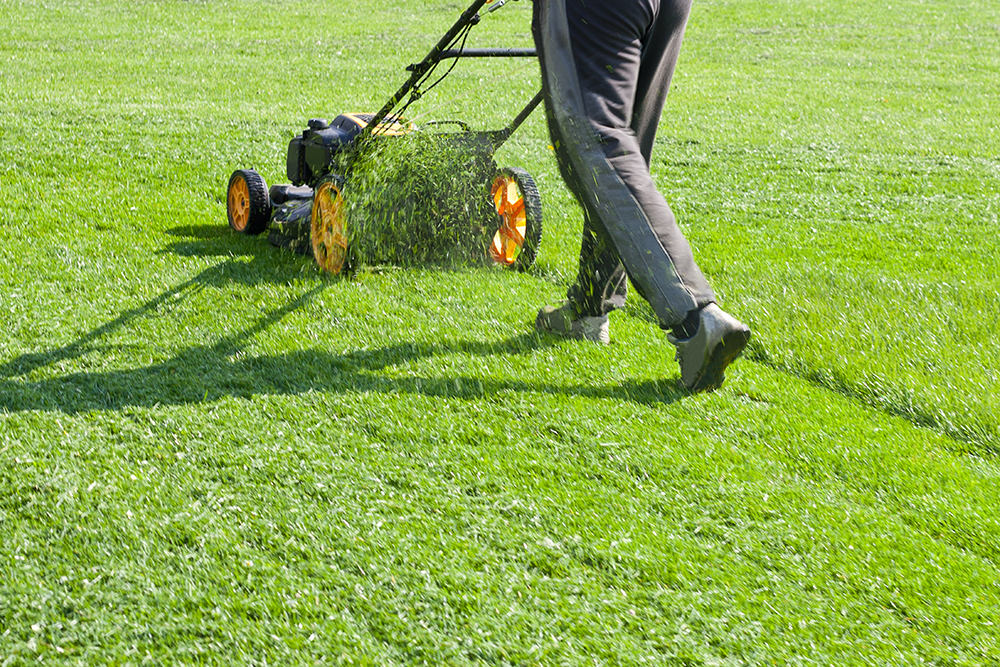Are You Allergic to Grass?
Our bodies can react to all manner of natural instruments within the world, causing reactions that can be deemed as allergic. One part of the world you don’t expect to suffer an allergic reaction to, though, is grass. However, a grass allergy is a highly common issue for people all around the world. Those who suffer from grass allergies tend to find that it springs up most commonly during the spring and summer months, though the issue can last all-year.
If you worry that you might have a grass allergy, this article will look to break down the allergy itself, and what you can do to combat the problem.
Symptoms of a Grass Allergy
Those who suffer from a grass allergy can face all manner of symptoms that can impact on your quality of life. Some of the most common and pressing symptoms of a grass allergy, though, include:

- Itchiness in the face, especially around the nose, eyes, ears, and mouth areas.
- Stuffiness leading to congestion, paired with a need to consistently sneeze.
- Red, watery, runny eyes paired with a runny nose that will not stop.
- Swelling around the eyes, leading to discomfort and difficulty seeing.
- Coughing fits and regular bouts of sneezing.
- Pressure around the head, leading to headaches and/or sinus pressure.
These symptoms are often consistent when spending time outside, though they can continue even when indoors if you are exposed to grass for long enough.
Countering your grass allergy
If you are suffering from a grass allergy, then you no doubt want to find ways to avoid the problem. The most common things that you can do to try and counter a grass allergy include the following:
- Avoid the main offenders. Certain types of grass can be more likely to cause an allergic reaction than others. Grass such as Orchard, Rye, Sweet Vernal, and Bermuda grass tend to be among the most likely grass types of cause grass allergies to spike.
- Check local forecasts. You can check local weather forecast and find out pollen counts for the day. If the grass pollen count is high for the day, try to limit how much time you spend outdoors – it might mean missing out on nice weather sometimes, but it’s better than setting off your symptoms!
- Manage your own grass. If you have grass at home, then make sure you keep the grass short. Shorter grass can still release pollen, but its potency and quantity will be significantly reduced.
- Shower before bed. A common issue can be going to sleep whilst still covered in tiny pollen substances that you cannot even see. As such, you should go for a shower before bed to remove pollen.
- Protect your hair and face. When outdoors, make sure you don a pair of sunglasses and a hat to try and keep pollen from interacting with your eyes or landing on your hair. This can minimise symptoms.
- Manage your pets properly. If your pets have been outdoors for a while, give them a quick towel down before they come into your home again – this can help to reduce how much pollen they bring in.
- Utilise prescription treatments. If you still find the problem is persisting, then you can get various antihistamines from a pharmacy or through your family physician.
Staying in control of grass allergies
Grass allergies can be tough work to deal with, and it can really limit how much time you get to spend out in the glorious outdoors. If you want to avoid such a limitation to your living quality, though, you should definitely look to utilise the options above. Prevention is one thing but taking treatment like antihistamines can be a good way to help make sure you can enjoy the outdoors like everyone else.
As ever, read over the instructions carefully, avoid taking alcohol with most antihistamines, and contact your doctor if you suffer from shortness of breath or tightness in the chest for any period of time.


